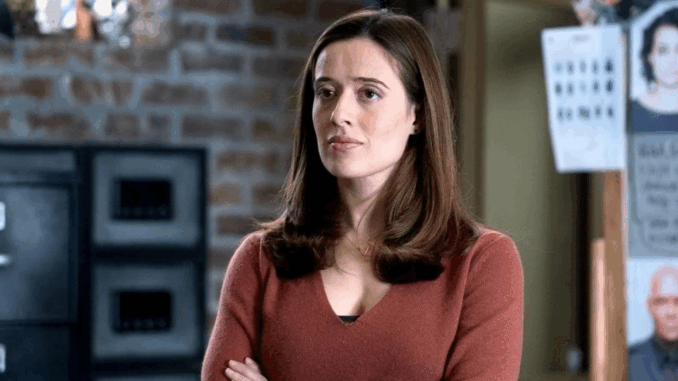
Kim Burgess, portrayed by Marina Squerciati, has been a steadfast presence in Chicago P.D., evolving from a rookie officer to a seasoned member of the Intelligence Unit. However, her journey hasn’t been without its challenges. In recent interviews, Squerciati delves into Burgess’ aspirations to move up in rank and the hurdles she faces along the way.
The Desire for Promotion
For years, Burgess has demonstrated unwavering dedication to her role, often putting the needs of others before her own. However, as Squerciati notes,
“It’s just been so long. I knew it was one of us. I didn’t care which. [laughs] I just wanted one of us to make it… There was a couple [of openings], so it’s time.”
This statement underscores Burgess’ readiness to step into a higher role within the department.
Balancing Family and Ambition
A significant factor in Burgess’ delayed pursuit of promotion has been her commitment to her family, especially after becoming a mother. Squerciati explains,
“She’s a new mom and trying to create stability for her daughter, who went through a traumatic event. I think that it’s harder to be ambitious when you have a family.”
This sentiment highlights the internal conflict Burgess faces between professional aspirations and personal responsibilities.
Support from Ruzek
Throughout her journey, Burgess has had the unwavering support of her fiancé, Adam Ruzek. Squerciati emphasizes that Ruzek’s support is crucial, stating,
“He’s not a dumb meathead that can’t support his more powerful fiancée. He’s an incredible partner.”
This partnership provides Burgess with the emotional stability needed to pursue her career goals.
Facing Department Politics
As Burgess aims for a promotion, she encounters the complex politics within the department. Squerciati notes,
“You can try and rise above in any job, but politics are part of it. It just infuses everything and she tried to sidestep it, and it still found her.”
This realization forces Burgess to navigate the intricacies of departmental dynamics more strategically.
The Role of Mentorship
Sgt. Hank Voight has been a mentor to Burgess, shielding her from certain harsh realities of police work. Squerciati reflects on this dynamic, stating,
“That’s the reason I can be the detective and officer that I am and was. It’s that Voight protects me from all the politics.”
This mentorship has been instrumental in Burgess’ development but also presents challenges as she seeks independence.
The Impact of Detective Suarez
Detective Suarez offers a contrasting perspective on police work, emphasizing the harsh realities of the job. Squerciati discusses how Burgess perceives Suarez’s approach, saying,
“I don’t want to become under someone’s thumb… And unfortunately, by the end of the episode, I still am.”
This encounter serves as a catalyst for Burgess to reassess her position and aspirations within the department.
The Significance of the Promotion
Achieving the rank of detective is a pivotal moment in Burgess’ career. Squerciati expresses the importance of this milestone, stating,
“I think she deserves it and hope she gets it.”
This promotion signifies not only professional growth but also personal validation for Burgess.
Challenges Ahead
Despite the promotion, Burgess faces ongoing challenges, including navigating departmental politics and establishing her authority. Squerciati acknowledges these hurdles, noting,
“It’s gonna leave a bad taste in her mouth. I think she tries not to think about it, but it’s still definitely there.”
These challenges will test Burgess’ resilience and adaptability in her new role.
The Future of Burzek
The relationship between Burgess and Ruzek, affectionately known as “Burzek,” continues to evolve. Squerciati discusses how their partnership influences Burgess’ career, stating,
“He’s supportive and wants it for me, because I want it for myself.”
